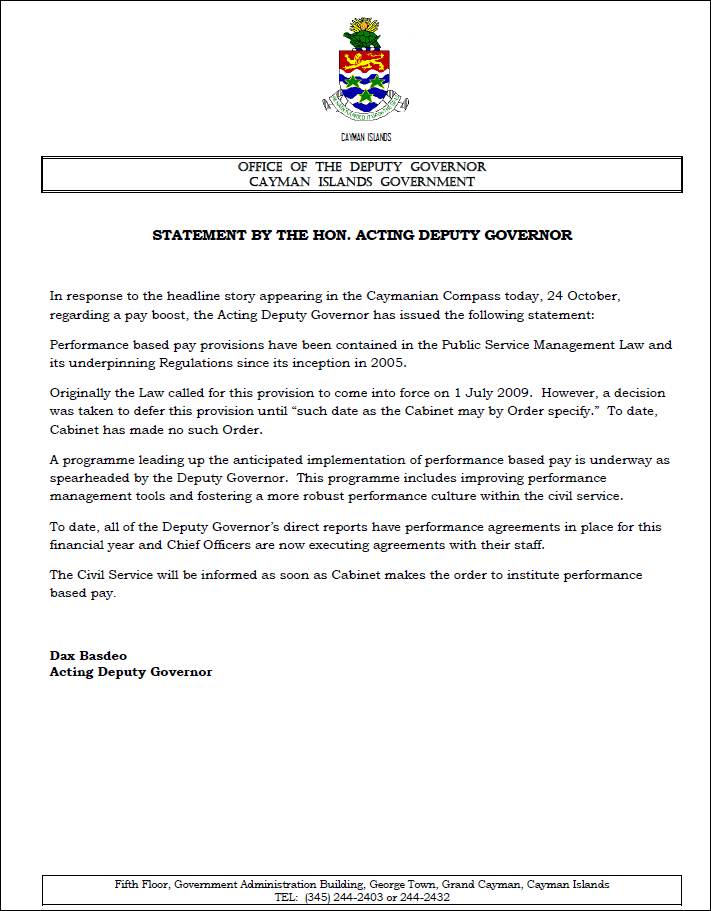Archive for October, 2012

Cayman and the 2012 apocalypse
The good news is that nobody will have to worry about conditions at the Turtle Farm. The high cost of living won’t be a burden anymore either. The bad news is that the Cayman Islands will be swept under the sea, everyone will die, and all of civilization will crumble in a fiery spasm of unprecedented chaos and destruction.
Here we go again. We are fast approaching yet another angry apocalypse and no one should be surprised. Throughout history, and probably deep into prehistory, a good number of us have always been obsessed with the end of the world and been willing to jump onboard whenever someone comes along with a firm date for doomsday. This time it’s the Maya 2012 prophecy. According to believers, the Maya calendar ends on December 21, 2012 so the world will too.
Poll results vary but about ten to 12 percent of American adults think the world is going to end this year. In China, 20 percent think it’s lights out on December 21. About 13 percent in Turkey, Russia, Mexico, and Japan believe it. Overall, one in ten people globally think the Maya doomsday prediction will come true. And don’t think that it’s all a big joke. NASA astronomer David Morrison says some people are so concerned about it that they are considering suicide.
Based on my encounters, with astrology fans in George Town, obeah practitioners in West Bay and rapture-ready folks in East End, I’m guessing that a significant percentage of people in the Cayman Islands are eyeing December 21 with concern. If you are one of these people, read on and allow me to ease your mind. If you know someone who thinks there is something to this Maya prophecy, please forward this commentary to them. Do it quickly. No one should suffer this much nonsense rattling around inside their skull.
What is going on? Why do hundreds of millions of people believe this extraordinary unproven claim? First of all, the Maya civilization existed from about 200 to 900 CE. They were in southern Mexico, Guatemala, Belize, El Salvador, and parts of Honduras—very near the Cayman Islands. Maya still live in Central America today and very few of them pay any attention to this doomsday date, which is our first hint that something is very wrong.
So here is the key question: How did the Maya know centuries ago that the world would end on December 21, 2012? How did they figure out something today’s scientists couldn’t? Answer: They didn’t! They never made this prediction! It is the invention of very strange modern people. The Maya may have tracked the path of the Moon, built impressive pyramids, and ripped beating hearts out of people in the name of religion, but they never claimed to know when the world would end. Imagine that, millions of people believe in a Maya prediction that not only has no evidence to support it but was never made by the Maya in the first place.
The Maya had several calendars, one of which lasts 5,125 years. This “long-count calendar” ends this year. This is the basis of the idea that the world will end. It’s like a Maya expiration date for everything. But here’s the key: the end of a calendar does not mean the world ends too. If it did, our 12-month calendar would mark Earth’s destruction every December 31. But it doesn’t. When the calendar stuck on your refrigerator door reaches December 31 it doesn’t trigger earthquakes, plagues, and asteroid strikes. You just throw it away and buy a new one. Same with the Maya long-count calendar. This is not some wild hunch I am extracting from my nether regions. This is the conclusion of every credible Maya scholar. There are no artifacts discovered to date that show the Maya expected the world to end when their long-count calendar ended. In fact, inscriptions have been found that clearly show the Maya expected the world to be here after 2012 because they wrote about important events occurring after that date.
Another fatal problem with this prediction that the Maya never predicted is that it’s based on a bad date to begin with. It would be wrong even if it was right. The first long-count calendar begins on a creation date of 3,114 BCE. We know beyond any doubt that the world and/or humankind are much older than five thousand years. Therefore any predictions about future events that are calculated using this or any similar creation date are going to be wrong. It’s a mistake based on a mistake. This is why Rev. Harold Camping’s much-publicized rapture date in 2011 was so obviously silly. He based his calculations on the Earth being less than 10,000 years old. Anytime someone attempts to solve a mathematical problem and gets the first number in the equation wrong by more than four billion years errors are unavoidable.
The greater question in all of this is why so many of us keep falling for these hollow predictions. My hunch is that they are so tempting because we subconsciously fear a lonely death. Maybe this is what makes the idea of a global doomsday so irresistible. We are social creatures, after all. We need one another more than we realize. Is it any surprise, then, that many of us might feel the urge to all go down together? For many, a collective death is more appealing than dying alone in a car on the side of a road after a traffic accident or quietly expiring in some hospital bed.
It is important to understand that irrational beliefs about doomsday have little to do with intelligence or education. One can be very bright, but if she or he is a weak skeptic then bad ideas can easily creep in and take root. For example, no less than Isaac Newton, perhaps the greatest scientist of all time, was quite certain that the end of the world will occur in 2060. But that’s not going to happen either because, for one reason, he based his calculations on an incorrect creation date for the Earth. Bad input gets you every time. When it comes to irrational beliefs, anyone who is a human being with a human brain is vulnerable to stumbling. The best we can do is stay humble and stay skeptical.
I can tell you right now what will happen on December 22, the morning after the Maya doomsday. Because of hindsight bias, many 2012 believers will sincerely imagine that they knew it was nonsense all along. Some will say the numbers were a bit off and come up with a new date for the end. Others will say that it did happen but it was an invisible doomsday or a doomsday of the spirit—something that can’t be detected or disproved, of course. And then, before long, another irrational doomsday belief will come along and millions of innocent brains will once again be under assault.
This colossal waste of time and nervous energy doesn’t have to keep happening. People only have to commit themselves to being good skeptics. Do that and watch the bogus beliefs and crazy claims just melt away. It’s not so difficult. Demand evidence for weird ideas. Ask questions. Consider the source. Listen to contrary opinions. Learn how easily confirmation bias and other natural quirks of the mind betray us to make silly things that aren’t true seem reasonable. In short, think before you believe.
Guy P. Harrison is the author of three science-themed books: “50 Popular Beliefs That People Think are True”, “Race and Reality: What Everyone Should Know About Our Biological Diversity”, and “50 Reasons People Give for Believing in a God”. His next book is scheduled for publication in March, 2013.

Insurance duty change is property tax, says Miller
 (CNS): The independent member for North Side has accused government of introducing a property tax via the back door with changes to the stamp duty law, which introduces a 2% rate on insurance policies rather than the previous flat rate fee of $12. One of a number of tax increases introduced by government in the 2012/13 budget in order to meet the strict spending parameters set out by the FCO government, the amendment is expected to be brought to the Legislative Assembly at next month’s meeting. As well as increasing stamp duty, the amendment provides for duty on property insurance.
(CNS): The independent member for North Side has accused government of introducing a property tax via the back door with changes to the stamp duty law, which introduces a 2% rate on insurance policies rather than the previous flat rate fee of $12. One of a number of tax increases introduced by government in the 2012/13 budget in order to meet the strict spending parameters set out by the FCO government, the amendment is expected to be brought to the Legislative Assembly at next month’s meeting. As well as increasing stamp duty, the amendment provides for duty on property insurance.
Ezzard Miller said that this equates to an annual property tax as it is based on the value of the insurance policy, which is in turn based on the value of people’s homes. The switch means a massive increase, not just for the wealthy but all homeowners, even those owning modest homes. He said the jump from the annual flat fee of $12 to a 2% rate was not just a massive hike but a tax on property ownership. The independent member said most homeowners will not have a choice in the matter asmost have a mortgage and must have property insurance.
“In the current economic climate this is going to affect many ordinary people,” he said. “This is nothing more than a property tax via the back door.”
Miller said he hoped to see people showing their objection to the tax on insurance policies because the man in the street was being crippled by the fees and taxes imposed by the current government due to its failure to address public spending while giving away duty waivers to businesses.
As result, when the amendment comes before the LA he would not support the bill , he said, but noted that his one vote would do little to alter government’s mind; that would take greater support from the community, he said, and pointed to the success of the Cayman United Group in its opposition to the propose ex-pat tax, which was dropped because of the public outcry. “I would like to see the same kind of opposition to this tax from the local activists,” he said.
The new law will also see stamp duty increased from 4% for Caymanians and 6% for non-Caymanians to 7.5% (the current rate for Seven Mile Beach) regardless of the location. However, the threshold before duty is payable for locals has been increased to properties of $300,000 and over and Caymanians will still only pay 2% on those up to $400,000.
Ex-cop released on bail in face of appeal
(CNS): Following the filing of an appeal by his attorney against the sentence passed by Justice Alex Henderson last Friday, Rabe Welcome has been released from HMP Northward pending the outcome of that appeal. Welcome was convicted by a jury in June this year of wounding after breaking a man’s arm during an early morning arrest while off-duty. Found to have crossed the line of reasonable force when he beat the victim who had committed an arrestable offence, the former police officer was sentenced to six months. Having served less than one week, however, Welcome was released Thursday following an application to the court. (Image courtesy of Cayman 27)
The incident took place almost three and a half years ago and Welcome was suspended from duty until the trial; following his conviction Welcome was sacked. Although this was Welcome’s first offence and there was no other evidence of any disciplinary action against the former cop and one time customs officer, the judge jailed Welcome as he said it was important to send a message that the use of excessive force by a law enforcement officer would not be tolerated.
Related article:

Baptist hospital promotes new heart valve treatment
 (CNS): One of the US based hospital that provides care for patients from the Cayman Islands is offering treatment for those with damaged aortic heart valves replaced without traditional surgery with a new FDA-approved procedure. The Baptist Cardiac & Vascular Institute at Baptist Hospital of Miami said that transcatheter aortic valve replacement (TAVR) is a promising treatment in which ‘a team of highly skilled doctors use a minimally invasive approach, gaining access to the heart through a small catheter inserted in the skin, to replace the diseased aortic heart valve while the heart is still beating” which the hospital claims eliminates the need for the heart-lung machine.
(CNS): One of the US based hospital that provides care for patients from the Cayman Islands is offering treatment for those with damaged aortic heart valves replaced without traditional surgery with a new FDA-approved procedure. The Baptist Cardiac & Vascular Institute at Baptist Hospital of Miami said that transcatheter aortic valve replacement (TAVR) is a promising treatment in which ‘a team of highly skilled doctors use a minimally invasive approach, gaining access to the heart through a small catheter inserted in the skin, to replace the diseased aortic heart valve while the heart is still beating” which the hospital claims eliminates the need for the heart-lung machine.
“This is a valuable option for inoperable patients with severe aortic stenosis to improve their quality of life,” said Ramon Quesada, M.D., the Institute’s medical director of interventional cardiology and cardiac research in a release about the new medical service.
Dr. Quesada and Jonathan Roberts, M.D., both interventional cardiologists, Niberto Moreno, M.D., heart surgeon and chief of Baptist Health’s cardiothoracic surgery, Lisardo Garcia-Covarrubias, M.D., cardiothoracic surgeon, and Ralph Machado, M.D., cardiac anesthesiologist comprise the multi-disciplinary team of doctors who perform the procedure.
“Studies show that patients who received the artificial heart valve lived longer, had better heart function and felt better than those patients who did not receive a new valve but were treated medically,” Dr. Moreno said.
During a TAVR, the patient is given general anesthesia while doctors insert a catheter into the femoral artery in the groin and guide it to the heart,” the release stated. An artificial heart valve made of a steel frame and animal tissue is fed into the catheter and threaded to the heart to replace the damaged aortic valve during the two-hour procedure. The frame of the new Edwards SAPIEN transcatheter valve is strong and uses part of the diseased valve to anchor securely in place.
Artic stenosis primarily affects older people with men having higher rates than women, and heart disease is associated with a 50 percent increase in the risk for death from heart attack.

No money for performance based pay in CS
 (CNS): No matter how well civil servants do in fulfilling their roles there will not be any bonus payments because government does not have the money. Although civil services heads have been working for some time to set the targets that will form the basis of performance pay in future as provided for in the public service management law (PSML), there is no sign of its implementation any time soon as there is no money in government coffers to boost any public servants’ pay packets. In a memo circulated by Acting Deputy Governor Dax Basdeo yesterday, civil servants were told that until the Cabinet approved the performance related pay system, there would be no bonuses.
(CNS): No matter how well civil servants do in fulfilling their roles there will not be any bonus payments because government does not have the money. Although civil services heads have been working for some time to set the targets that will form the basis of performance pay in future as provided for in the public service management law (PSML), there is no sign of its implementation any time soon as there is no money in government coffers to boost any public servants’ pay packets. In a memo circulated by Acting Deputy Governor Dax Basdeo yesterday, civil servants were told that until the Cabinet approved the performance related pay system, there would be no bonuses.
The PSML provides for civil servants to be paid based on the things they achieve in their day to day roles based on specific targets. Depending on how well they do, public servants will, once the system is in place, be able to earn themselves extra cash. Those that do not perform will not lose money but would be closely monitored and they could be dismissed if their targets are consistently missed.
However, even though the law had called for this performance based pay system to come into effect in 2009, Cabinet has not yet issued the necessary order and so the system is not yet in place.
Nevertheless, the deputy governor has overseen a programme to develop a system in preparation for the eventual implementation of the performance pay structure and to foster a “more robust performance culture within the civil service”, Basdeo said in the memo.
Performance agreements have been drawn up and the acting deputy governor said that chief officers were working with staff to execute them. However, they will not impact salaries until such a time as Cabinet makes the order.

Mosquito attack continues in face of fifth local case
 (CNS): After a fifth case of locally transmitted dengue fever in West Bay, the MRCU is pressing ahead with its additional ground and air operations despite the weather. In an effort to keep the numbers of the Aedes aegypti, the mosquito that carries the disease, under control, the unit will be carrying out early evening aerial missions on Mondays, Wednesdays and Fridays, instead of Tuesdays and Thursdays as originally scheduled. However, the mozzie experts are asking people to follow the guidelines to eliminate breeding grounds around their homes and to prevent bites. In the most recent outbreak of the disease, of the eight cases that have been confirmed three were imported and five transmitted in Cayman.
(CNS): After a fifth case of locally transmitted dengue fever in West Bay, the MRCU is pressing ahead with its additional ground and air operations despite the weather. In an effort to keep the numbers of the Aedes aegypti, the mosquito that carries the disease, under control, the unit will be carrying out early evening aerial missions on Mondays, Wednesdays and Fridays, instead of Tuesdays and Thursdays as originally scheduled. However, the mozzie experts are asking people to follow the guidelines to eliminate breeding grounds around their homes and to prevent bites. In the most recent outbreak of the disease, of the eight cases that have been confirmed three were imported and five transmitted in Cayman.
The department said thisweek that it is waiting on results for a further 20 cases and officials say there may be further local cases confirmed as a result of the recent rain and the increase in standing water where the Aedes aegypti breeds.
Although dengue can be severe, even fatal, none of the local patients have been critically ill and most have now recovered. Dengue fever is not passed from person to person. For transmission to occur the Aedes mosquito must bite the sick patient in the first week of symptoms, after which he becomes non-infectious, and then must survive for a further 8-10 days in order to transmit the disease. Those insects destroyed during this period are unable to pass on the disease.
The public are advised that the insecticides which MRCU uses are safe and approved by the Environmental Protection Agency (EPA) in the United States.
Aedes aegypti lives and breeds in and around houses. To avoid their homes becoming breeding grounds, members of the public should drain water from coolers, tanks, barrels, drums and buckets, remove objects in the yard which have collected water and keep water containers covered.
While most mosquitoes bite at dawn or dusk, this mosquito also bites in the day so the Public Health Department advises people to wear long sleeves, long trousers and mosquito repellent as a precaution against bites.
Any questions or queries should be directed to MRCU on 949-2557 or info@mrcu.ky.

Port slammed over FOI abuse
 (CNS): The Information Commissioner's Office has condemned the Port Authority of the Cayman Islands (PACI) over the way it handled a freedom of information request made by CNS back in January regarding the GLF cruise berthing proposal. In her decision delivered Thursday, some ten months after we made our request, Commissioner Jennifer Dilbert described the procedural issues relating to the request as “unprecedented” and said the authority repeatedly failed to meet deadlines or cooperate with the ICO. “In my opinion PACI showed a total disregard for the policies and procedures of the ICO, and the FOI Law,” the information boss found as she announced that she was conducting a separate investigation under section 44 of the law regarding the port's failure to comply.
(CNS): The Information Commissioner's Office has condemned the Port Authority of the Cayman Islands (PACI) over the way it handled a freedom of information request made by CNS back in January regarding the GLF cruise berthing proposal. In her decision delivered Thursday, some ten months after we made our request, Commissioner Jennifer Dilbert described the procedural issues relating to the request as “unprecedented” and said the authority repeatedly failed to meet deadlines or cooperate with the ICO. “In my opinion PACI showed a total disregard for the policies and procedures of the ICO, and the FOI Law,” the information boss found as she announced that she was conducting a separate investigation under section 44 of the law regarding the port's failure to comply.
In the final analysis Dilbert has ordered some further records released and upheld the Port Authority's decision to keep others under wraps. However, her main concern in this case has been the failure of the authority to follow the law, not just in terms of what it should have released but also in connection with the procedural process.
CNS made the FOI request to the port in January after a previous request by someone else was dealt with by the commissioner but was then dropped by the applicant. From that point on the obstruction and difficultiesbegan.
Although the commissioner had ordered the records released to the original applicant, when CNS asked for the same records we were refused. Dilbert ordered the Port Authority to comply with her decision but it objected and questioned the validity of the commissioner applying the original decision to a new applicant.
The commissioner then turned to the courts to enforce her decision, but in the face of what was likely to be a costly and long legal battle, the more efficient move was for CNS to make a fresh request. We did so, and after some time received some records. However, it was very clear that not everything relating to our request had been released and as a result CNS asked the ICO to intervene once again.
"The unreasonable manner in which this request was handled at every step along the way unnecessarily created additional cost, work and delays for all concerned,” Dilbert said as she pointed to the obstructionism of the authority over the ten months since the request was submitted. She added that the authority consistently confused the disclosure of records to CNS as the applicant with the provision of copies of records to the ICO to enable the office to carry out the appeal under the law.
“This resulted in delays and much additional work on the part of the ICO to bring the appeal to this point,” Dilbert said in her decision, rejecting outright the port's claim that to “disclose any privileged documents in the absence of compulsion as to do so would result in waiver of privilege over these records.”
She said the authority had “grossly misused” the application of legal professional privilege in this case in various different ways.
Dilbert also said that once the ICO hearing began, the port engaged in “a month of negotiation, unacceptable delays, and non-cooperative and obstreperous responses”.
The authority did all it could to prevent the ICO seeing the documents that were in dispute but eventually agreed to staff from her office inspecting the responsive records at the offices of PACI’s lawyers.
“The ICO was challenged at each step of the way, and while to expedite matters the ICO agreed to inspect records at the offices of the lawyers, it placed significant and unnecessary logistical burdens on the staff. It was doubly frustrating, and further testifies to the obstructionist approach by PACI, when the resulting informal opinion letter was apparently not seriously considered after a further delay of over a month,” she added.
One of the most serious issues that came to light during this appeal, however, was that the ICO discovered records that should have been identified and provided to the office after the original open records request made which was later withdrawn (Hearing 19-01911). In short, the port may have deliberately withheld records that should have been declared to the ICO in a hearing that was completed last year in direct contravention of the law.
Following her instructions to the port to release more documents, the authority now has 45 days to reveal these outstanding records or seek judicial review. CNS, as the applicant, has accepted the commissioner's decision that some records actually are exempt under the law and others are not relevant and will not be seeking judicial review.
“However, we continue to live in hope that the port will comply with the order to release the records that Dilbert states are not exempt and hope that the almost year long record breaking request can finally be dealt with,' said reporter Wendy Ledger.
“I have made many FOI requests in the course of my work at CNS and many of them have seen public authorities missing deadlines and failing to release what they should, requiring the intervention of the ICO, but this was the most ridiculous of them all. It is quite apparent that whatever happened regarding the sudden rejection of the GLF cruise berthing proposal, the people of Cayman will never know the complete truth.The port's reluctance at every turn over this request speaks volumes about whether this was or was not above board,” Ledger added.
See ICO's full decision below.

GT man faces attempted murder charge over stabbing
(CNS): A 25-year-old man from George Town has been charged with attempted murder in connection with a stabbing in George Town last Friday. Police said that the man appeared in court Thursday morning (25 October) and was remanded in custody to HMP Northward. The charges relate to an incident in Kingbird Drive on the morning of 19 October when a 49-year-old man was stabbed. The victim was takento the Cayman Islands Hospital, where he was treated for critical injuries. The man remains in the local hospital and is now said to be in a stable condition.

Cop charged over single car smash
(CNS): A 54-year-old police officer has been charged with a number of traffic offences, including careless driving and leaving the scene of an accident, following a single vehicle smash in George Town last month. A police spokesperson said that while the officer has been suspended from driving police vehicles, he has not been suspended from the service. The police officer was arrested after leaving the scene of a road crash in Ithmar Circle on Friday 14 September at around 1:40am while he was off duty. The officer was arrested sometime after the crash after a report was made to the police about the crash and the driver's departure from the scene.

Public accounts fail audit
 (CNS): The Cayman public is still in the dark when it comes to the details of how the government is collecting and spending tax dollars. In his latest review on the state of government's reporting on public finances Auditor General Alastair Swarbrick reveals that his office is unable to audit government's entire accounts because of the poor quality of information supplied. Many reports from ministries, portfolios and government companies that have been completed and audited have never been tabled in the Legislative Assembly, he said, and as a result they are unavailable to the public. Although Swarbrick tried to be positive about the improvements he has seen since he took office, such as more timely relevant information, he said government remains unaccountable to the people.
(CNS): The Cayman public is still in the dark when it comes to the details of how the government is collecting and spending tax dollars. In his latest review on the state of government's reporting on public finances Auditor General Alastair Swarbrick reveals that his office is unable to audit government's entire accounts because of the poor quality of information supplied. Many reports from ministries, portfolios and government companies that have been completed and audited have never been tabled in the Legislative Assembly, he said, and as a result they are unavailable to the public. Although Swarbrick tried to be positive about the improvements he has seen since he took office, such as more timely relevant information, he said government remains unaccountable to the people.
Although government had patted itself on the proverbial back last year for submitting consolidated accounts to Swarbrick's office and the premier has claimed on numerous occasions to have presided over an improvement in the standard of government accounting, this is in fact a far cry from the truth.
Swarbrick said at a media briefing on Thursday morning in connection with his latest review that while efforts were being made towards improving the timing and quality of information being submitted to his office, there was still a long way to go before there was any real transparency for the voting public.
“Government must be held to account on how it uses public money,” Swarbrick said, “but it isn't possible right now.” The progress being made has not yet translated to transparent accounts that can tell the man in the street exactly how government has collected or spent public money, he said. Government is still unable to produce a full set of consolidated accounts that Swarbrick's team is able to audit.
In seven months Cayman's tax paying electorate will go to the polls once again with no real idea about what government has done with more than $2 billion it has collected and spent over the last four financial years.
Swarbrick pointed to the same problems that have been highlighted by his office since the first report undertaken by his predecessor, Dan Duguay, in 2008. A lack of leadership, poor systems in place and a lack of supporting documentation remain as acute today as they did when the problem was first brought to the public's attention more than four years ago.
The auditor said that the failure of the relevant ministers to lay the completed reports on the table of the Legislative Assembly was also undermining the process and the little progress that was being made. Swarbrick said that more than 70 reports that have been finished in some cases for as much as a year have never seen the light of day.
“Accountability delayed is accountability denied,' Swarbrick said. “The tabling of the reports is the final and most significant part of the process,” he added.
While trying to be positive about the improvements he had seen, he acknowledged that the government's state of financial accountability reporting was still of a poor standard.
Even with the advances made with the individual government entity reports, because those do not contain important elements such as executive transactions and balances of government, such as coercive revenues, transfer payments, executive expenses, loans and executive assets, the public is not getting the complete picture.
In short, despite task forces, oversight committees, assistance from FCO experts, direction from the Deputy Governor's Office, scrutiny by the Public Accounts Committee and the regular reports from the auditor general, government is still unable to account for how it is collecting and spending public cash.
See latest report below.